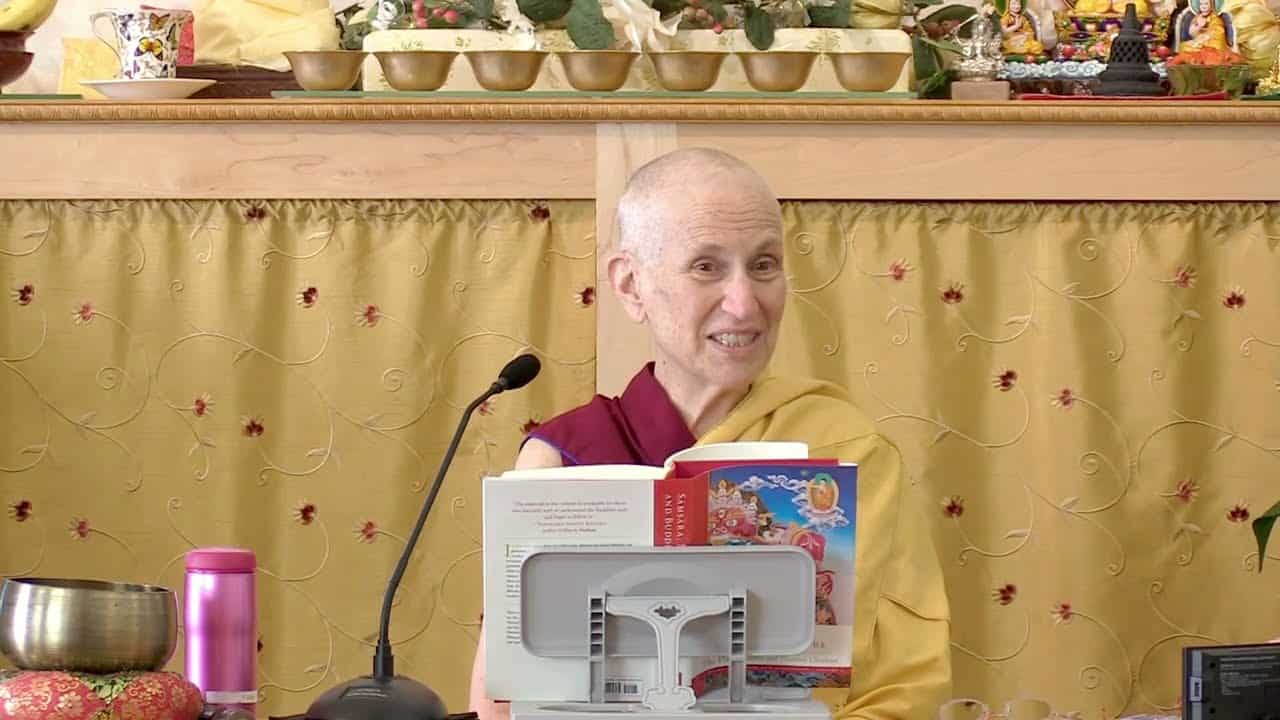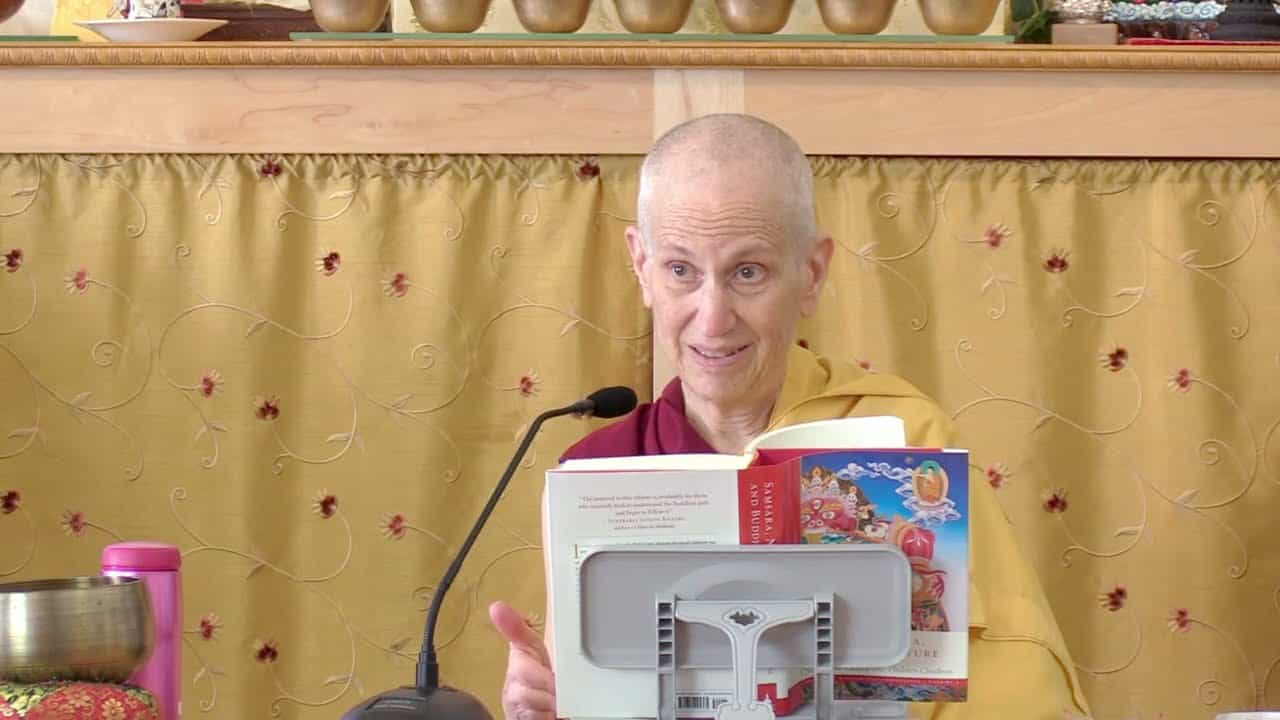The origin of duhkha
05 Samsara, Nirvana, and Buddha Nature
Part of an ongoing series of teachings (retreat and Friday) based on the book Samsara, Nirvana, and Buddha Nature, the third volume in The Library of Wisdom and Compassion series by His Holiness the Dalai Lama and Venerable Thubten Chodron.
- Responses to questions on duhkha and reducing attachment
- Pervasive duhkha of conditionality
- Five aggregates are momentary processes
- How the idea of an independent I is a delusion
- Ignorance, craving and karma
- Craving is an active force that creates duhkha
- Attachment to and craving for pleasure leads to problems
- Craving breeds dissatisfaction and a sense of lack
- Craving leads to rebirth
- True cessations is relinquishing afflictive obscruations
Samsara, Nirvana, and Buddha Nature 05: The Origin of Duhkha (download)
Contemplation points
- What is the Buddhist definition of attachment? Why is it considered an affliction/something to be abandoned? Identify some experiences when you’ve been upset, angry, or disappointed. How did attachment play a role? Take one example and then apply the antidote, playing it out in your mind. Now take the next example and transform your mental experience of the situation.
- How can you use grief, loss, or difficulty in life to energize and challenge yourself to approach life in a different way?
- “When we look deeply into the nature of the five aggregates, we see that they are simply momentarily changing processes that are in constant flux.” Despite this truth, do you feel that you exist simply in this way or do you feel there is a real, independent self? When we recognize our impermanence, that the aggregates are not secure, what conclusion does it bring us to?
- Describe how ignorance, craving, and karma keep us trapped in the cycle of samsara? Really spend some time thinking of what you do to get mental and physical pleasure? How has craving make you like an addict, breeding dissatisfaction and a sense of lacking?
- Bring to mind examples in your life of not being able to hold onto what is pleasant. Identify internal and external changes that resulted in the dissatisfaction. Identify the predominant afflictions you experienced when these changes occurred. When you are craving, what are you feeling in your body? What is the mind thinking/feeling? What are some methods you can practice to decrease craving?
Venerable Thubten Chodron
Venerable Chodron emphasizes the practical application of Buddha’s teachings in our daily lives and is especially skilled at explaining them in ways easily understood and practiced by Westerners. She is well known for her warm, humorous, and lucid teachings. She was ordained as a Buddhist nun in 1977 by Kyabje Ling Rinpoche in Dharamsala, India, and in 1986 she received bhikshuni (full) ordination in Taiwan. Read her full bio.


